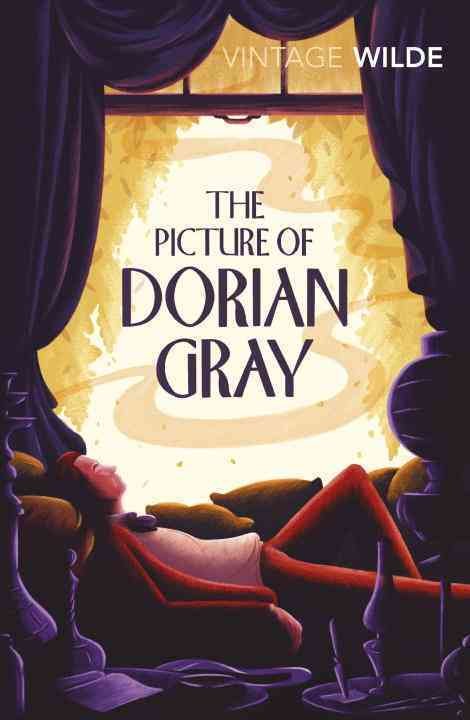Some of our course writers have also employed the dark/light structure that Lucas makes such powerful use of.

Can you think of moments – in the texts you’re studying – during which the ‘light’ shines brighter because of the ‘darkness’ the writer has surrounded it with. Or vice versa? Maybe the moments of ‘darkness’ feel way more shocking because of the ‘light’ everywhere else? Whatever the case, explore that relationship between ‘light’ and ‘dark’.
Let’s model the kind of thinking you might be doing by looking at Oscar Wilde’s ‘The Picture of Dorian Gray’.
Chapter 1
The “sunlight” slipping “over the polished leaves” in chapter one feels significant. The presence of that light is established so early on, but it’s illusory. The light only touches the surface of the leaves – perhaps foreshadowing the darkness at the core of the text? At the core of humanity? At the core of the Victorian’s superficial codes of conduct?
Think too about the end of the chapter, when: “The painter turned to his servant, who stood blinking in the sunlight.” What is Wilde prompting us to think about the relationship between light and dark, and what those two things symbolise? Is it worth thinking about the fact that there’s no explicit mention of dark/darkness in the opening chapter of ‘Dorian Gray’?
Chapter 2
Look too at chapter 2 when: “the painter appeared at the door of the studio… ‘I am waiting,’ he cried. ‘Do come in. The light is quite perfect, and you can bring your drinks.'” Why is the light significant? What does it symbolise?
Chapter 3
Lord Henry is lighting up Aunt Agatha’s lunch party and… “Dorian Gray never took his gaze off him, but sat like one under a spell, smiles chasing each other over his lips and wonder growing grave in his darkening eyes.” Consider the light elsewhere so far in the text, then the impact of this ‘darkening’.
Chapter 4
Dorian is telling Henry about his visits to watch Sybil. He remembers leaving one night and, “the lights were being put out in the theatre, and I had to go.” What do the lights represent? How are they significant? What is left once those lights go out?
Chapter 6
Think about the moment at which Lord Henry and Dorian drive off to watch Sibyl perform. There is no room for Basil. “He drove off by himself, as had been arranged, and watched the flashing lights of the little brougham in front of him. A strange sense of loss came over him. He felt that Dorian Gray would never again be to him all that he had been in the past. Life had come between them…. His eyes darkened…” Consider the “flashing” of the lights and his darkening eyes!
Chapter 7
Consider the “dimly lit streets” and “black-shadowed archways” wanders through after rejecting Sybil. Consider the adjacent paragraph in context of this darkness. In that next paragraph, Wilde writes that, “As the dawn was just breaking… The darkness lifted…”
Chapter 8
Dorian has reflecting on his brutal treatment of Sybil; Lord Henry has told him not to waste his tears. Then: “The evening darkened in the room… the shadows crept in from the garden. The colours faded wearily out of things.” What is the significance of the darkness here?

Chapter 13
Dorian kills Basil, then: “For a few seconds he stood bending over the balustrade and peering down into the black seething well of darkness. Then he took out the key and returned to the room, locking himself in as he did so.” What is interesting about Dorian’s relationship to the darkness here?
Chapter 14
“The mellow November sun came streaming into the room. The sky was bright, and there was a genial warmth in the air. It was almost like a morning in May.” At this point, memories of Basil come to haunt Dorian. “The dead man was still sitting there, too, and in the sunlight now. How horrible that was! Such hideous things were for the darkness, not for the day.” What do we understand as a result of the dark/light proximity?
Chapter 16
Dorian visits the area of London where he knows he’ll find the opium dens: “the blurred street-lamps looked ghastly in the dripping mist” and “Most of the windows were dark.” What can we read into the relationship between light and dark here?
Chapter 20
Dorian dies and his cries are heard. A policeman and two older gentlemen look at the house. “Except for a light in one of the top windows, the house was all dark.” What are we meant to understand about the light/dark relationship as the novel ends?
Do think of moments – in the texts you’re studying – during which the ‘light’ shines brighter because of the ‘darkness’ the writer has surrounded it with. Or vice versa. Send us your ideas and we will include the best of them on this page! Contact us here or email jc@soundofpen.com.

